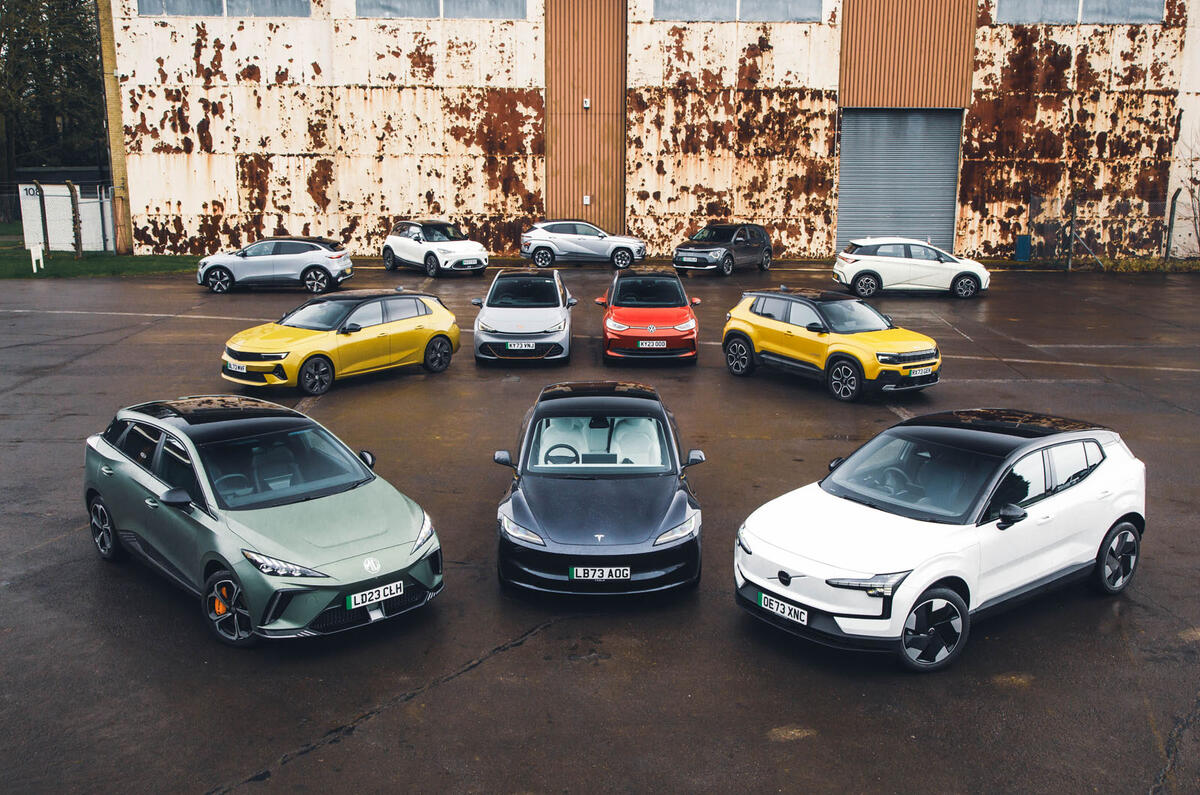The Labour Party has pledged to reintroduce the 2030 ban on sales of new petrol and diesel cars if it wins the 4 July general election.
The Conservative government last year delayed the end of sales of non-hybridised combustion cars from 2030 to 2035.
Prime minister Rishi Sunak cited the need for extra time to install public EV charging infrastructure and alignment with other major powers, including the EU and Canada, as key reasons behind the postponement.
The move was met with mixed reaction from the industry. Ford UK boss Lisa Brankin said it would “undermine” the transition to electric cars and Mike Hawes, chief executive of trade body the Society of Motor Manufacturers and Traders (SMMT), said it would create “confusion and uncertainty” for buyers. Meanwhile, JLR hailed the delay as “pragmatic” and Toyota said it was “welcome”.
Labour has argued in its election manifesto that moving the ICE end date back to 2030 would bring “certainty” for car manufacturers.
It added that it would “support the transition to electric vehicles by accelerating the roll out of charge points”, as well as introduce a battery health standard to support sales of used EVs.
Regardless of which date is set as a moratorium on sales of new ICE cars, the existing zero-emission vehicle (ZEV) mandate will force a gradual transition towards electric cars.
The new legislation sets limits on the ratio of non-ZEVs that manufacturers can sell each year. This year, 22% of each car brand’s sales are required to be ZEVs.
Given the unavailability of hydrogen cars and sustainable fuels, it effectively means that 22% must be battery-electric.
That ratio rises annually, with milestones including 33% in 2026, 52% in 2028 and 80% in 2030. The targets for 2031 through to 2035 aren't yet legal, only indicative, hitting 92% in 2033 and 100% in 2035.
Before the ban on sales of ICE cars was delayed, there was a provision for hybrids with a “significant zero emission capability” (SZEC) to remain on sale between 2030 and 2035.
It's possible that a reinstated 2030 ban would retain this element, avoiding the need to adjust the ZEV mandate to completely phase out all non-zero-emission vehicles by 2030.
The Liberal Democrats have also pledged to restore the 2030 ban.
The Green Party said it would bring the deadline forward to 2027 and completely phase out the use of petrol and diesel cars on British roads by 2035.
Reform UK said it would scrap both the ICE car ban and the ZEV mandate.







Join the debate
Add your comment
Good news that the 2030 ban on new combustion cars could be reinstated. All the manufacturers are working to that date anyway. No doubt the lackeys of the oil companies, both official and unofficial, will continue to freak out over it.
Not quite, you're making the same mistake as the BBC etc, you'll still be able to buy a new combustion car with a petrol cap in 2031,2032,2033 and 2034 it'll just have an electric socket too.
I was watching a group, run-them-until-they-stop EV challenge and at one particular charging station that was closed on the previous challenge there was now a sign stating that the chargers are non-operational the amount of power they require and are rated at cannot be met by the grid. There must be the-mother-of-all civil engineering projects in the pipeline.
That's nothing, I went to a petrol station last month and there was a sign saying NO Petrol, well the sky is surely falling in.
Incidently where was station?
Yep it's in their manifesto quote from it ... certainty to manufacturers by restoring the phase-out date of 2030 for new cars with internal combustion engines.
Probably drop it once elected anyway.
Yes agreed, its Starmer trying to pull his green wing on side, which is important for him in what could be a very large group with disparate interests. At any rate, the new Government have to keep an eye to EU (still at 2035).
Meanwhile OEMs starting to put money into new ICE developments. Will be interesting to see how this will all pan out over the next years.